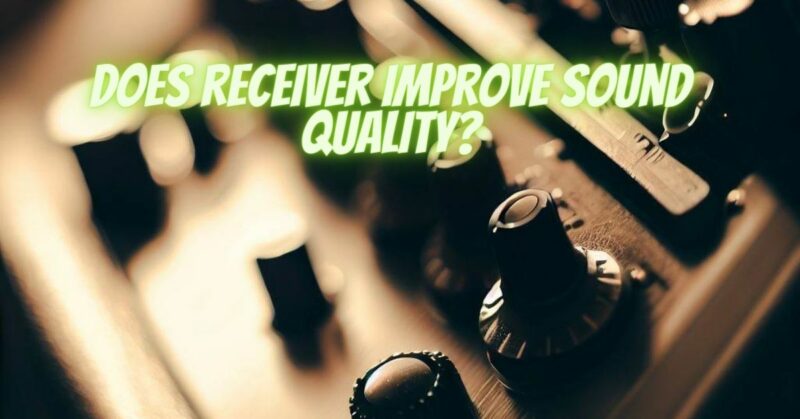A receiver is an electronic device that amplifies audio signals and sends them to speakers. It can improve sound quality by providing more power to the speakers, which can lead to louder and clearer sound. Additionally, receivers often have features such as digital signal processing (DSP) that can improve the sound quality of the signal.
However, a receiver does not always improve sound quality. If you are using high-quality speakers and a good source (such as a CD player or digital audio player), then a receiver may not make a significant difference in sound quality. However, if you are using lower-quality speakers or a poor source, then a receiver can make a big difference in sound quality.
Here are some of the ways a receiver can improve sound quality:
- Power: A receiver can provide more power to the speakers, which can lead to louder and clearer sound.
- Digital signal processing (DSP): DSP can be used to improve the sound quality of the signal by correcting for frequency response errors and adding surround sound effects.
- Features: Some receivers have features such as a built-in DAC (digital-to-analog converter) that can improve the sound quality of the signal.
Here are some of the factors that can affect the sound quality of a receiver:
- Quality of the components: The quality of the components in a receiver can affect the sound quality. Higher-quality components will typically produce better sound quality.
- Power output: The power output of a receiver is important for driving speakers. A receiver with more power will be able to drive speakers to louder levels without distorting the sound.
- Features: Some receivers have features that can improve sound quality, such as a built-in DAC or DSP.
A receiver can improve sound quality in some cases, but it is not always necessary. If you are using high-quality speakers and a good source, then a receiver may not make a significant difference in sound quality. However, if you are using lower-quality speakers or a poor source, then a receiver can make a big difference in sound quality.
Here are some additional tips for choosing a receiver:
- Make sure that the receiver is compatible with your speakers. The receiver and speakers should have the same impedance rating.
- Consider the features you need. Some receivers have features such as built-in DACs and digital signal processing that can improve the sound quality of your system.
- Read reviews. Read online reviews of different receivers before you make a purchase. This will help you get a sense of what other people think of the different models.
- Test drive. If possible, try out different receivers before you buy them. This will help you hear the difference between the different models and choose the one that sounds best to you.


